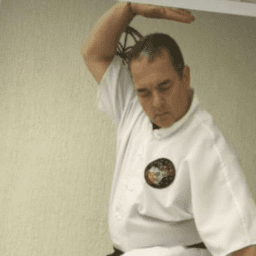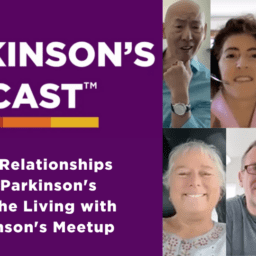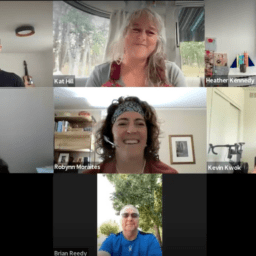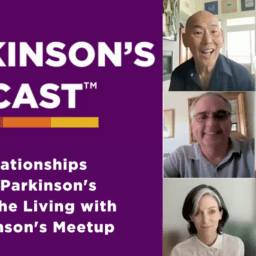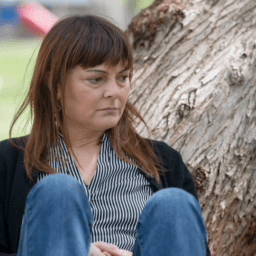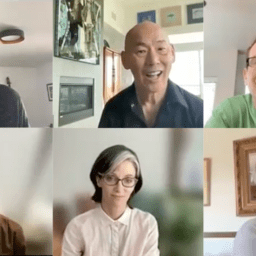For many people, a movement disorders specialist (MDS) is a critical part of their care team. An MDS is a neurologist who has received specialized training in treating movement disorders, and they tend to be more familiar than other care providers with the full range of symptoms and treatments for Parkinson’s.
The Problem With Movement Disorders Specialists is There just aren’t enough of them
There are over one million people living with Parkinson’s in the US today, and only ~11,000 registered members of the Movement Disorders Society, a professional association for those interested in the treatment and research of movement disorders. Not every MDS is a member of the Movement Disorders Society, and not every member of the society is an MDS, so the exact number of MDS providers is difficult to estimate.
Additional data highlights the current shortage. For example, a 2016 study reported that the average wait time to see an MDS was 2.2 months, and a third of the providers surveyed had wait times of greater than three months. One study in 2022 found that there were up to 90,000 people diagnosed with Parkinson’s each year in North America, and another found that there are as few as 88 movement disorders fellowships available each year in North America. For every newly trained MDS, there are nearly 1,000 newly diagnosed people with Parkinson’s.
There is a bit of good news about this shortage, though. A 2013 study estimated that there were only 46 movement disorders fellowships in North America, which means that the number of fellowships has roughly doubled in the past decade. Nevertheless, the fact remains that there aren’t enough MDS providers to treat all people with Parkinson’s, especially when considering that MDS providers tend to practice close to metropolitan areas and rural living is associated with an increased risk of Parkinson’s.
The Benefits of Having a Movement Disorder Specialist
Still, all that said, if you are fortunate enough to have access to an MDS, there are plenty of good reasons to include them on your care team. Here are five ways that seeing an MDS can be helpful:
- Diagnosis. An MDS is trained to identify the differences between Parkinson’s and Parkinsonisms, so seeing a specialist can help make sure your diagnosis is accurate.
- Treatment optimization. An MDS’s experience treating many people with Parkinson’s can help them optimize medications faster. Many care providers will be familiar with carbidopa-levodopa, but there are many formulations of levodopa, and more are on the horizon. Some providers may be less familiar with which formulations might be best for your specific circumstances. Additionally, an MDS often has a broader network of allied health providers who are familiar with Parkinson’s, so they may be able to provide better referrals for your related health needs.
- Non-motor symptom recognition. An MDS may be more familiar with non-motor symptoms of Parkinson’s than providers who have not specialized in Parkinson’s. These symptoms can have significant effects on quality of life, and there are often treatments that can help minimize these symptoms.
- Advanced treatments guidance. An MDS can help you consider the range of advanced treatments like Focused Ultrasound, deep brain stimulation (DBS), and Duopa. Even if you don’t need advanced treatments today, having an established relationship with an MDS can help minimize delays in accessing these treatments if the need arises.
- Familiarity with recent research developments. An MDS will be more familiar with recent research in Parkinson’s and what clinical trials are ongoing that might be appropriate for you to consider.
But, if you don’t have access to an MDS, please know that all hope is not lost.
What YOU CAN Do if You Don’t have access to an MDS
Here are six things you can do if you don’t have access to an MDS (or a good one) for the regular treatment of your Parkinson’s:
- Stay connected to the Parkinson’s community, either online or in your local area. This is important because it can help keep you from feeling alone while living with Parkinson’s. It can also help you learn from people who may have had similar experiences to you. You may learn about interesting opportunities or who to add to your care team from your local community.
- Educate yourself about Parkinson’s. Review our medication guide and other online resources. Get a copy of our Every Victory Counts® manual. Sign up for updates about upcoming dates for PD SELF if you are within three years of your diagnosis. Reach out to a Davis Phinney Foundation Ambassador or contact us if you have questions. We are here to help.
- Prepare thoroughly for your doctor’s visits. Even when you visit an MDS who is very familiar with the ways Parkinson’s may affect you, it is often hard to cover everything you want to talk about during your appointments. It is even easier for concerns to get pushed aside when you are seeing someone less familiar with Parkinson’s. Make sure to prepare for your appointments and bring someone with you whenever possible. We have free worksheets that can help you prepare. Also, be sure to take advantage of your doctor’s patient portal to ensure there is a record of your symptoms, notes, and requests.
- Be diligent in building your care team. If you don’t prioritize seeing an MDS, you should put extra effort into developing a strong care team. If your core care team providers are not Parkinson’s experts, you can still seek out providers who are willing to learn about Parkinson’s, carve out extra time for you, and are committed to building a good relationship with you. When you need to change or add a provider for any reason, talk with people you trust in your local area or call your local health department for alternative recommendations.
- Use the Fox Trial Finder. Visit Fox Trial Finder or clinicaltrials.gov to stay up to date on upcoming and ongoing clinical trials. Many people with Parkinson’s participate in trials for the little-known reason that participating in a trial usually means you will get more regular and consistent care from Parkinson’s experts for the duration of the trial. Some trials and studies also require few, if any, on-site visits.
- Think outside the box. While you may not have access to an MDS regularly, consider the possibility of connecting with an MDS in a location where you have a reason to visit periodically, like somewhere you have friends or family. Two good resources for finding a movement disorders center are the Parkinson’s Foundation’s list of Centers of Excellence and the American Parkinson’s Disease Association’s list of Centers for Advanced Research. Additionally, some people travel to see an MDS every few years and then check in with them via telehealth periodically. It doesn’t have to be all or nothing.
So, Do You Really Need to See an MDS to get quality Parkinson’s care?
The simple answer is no. Would it be ideal to have the best MDS possible? Yes. But can you live well with Parkinson’s without one? Yes. In nearly all cases, generalized care is better than no care. And often, a care provider with whom you have a long relationship and who has a strong familiarity with your health background can often provide insight into your care that an MDS might overlook.
There are many ways to live well with Parkinson’s, and there are just as many ways to find and receive the care you need.
Additional Resources
Navigating Parkinson’s in Rural America
What does a Movement Disorders Specialist Do?
Choosing Between a Neurologist and a Movement Disorders Specialist
Seeking a Parkinson’s Specialist
WANT MORE PRACTICAL ARTICLES LIKE THIS?
You can learn much more about living well with Parkinson’s today through our Every Victory Counts® suite of resources. Each manual is packed with up-to-date information about everything Parkinson’s. Click the link below to order your manual(s).
Thank you to our 2023 Peak Partners, Amneal and Kyowa Kirin, and our Every Victory Counts Gold Sponsor, AbbVie Grants, for their ongoing support of these must-have manuals. Additionally, we’d like to thank Barbara and Dale Ankenman, Abby and Ken Dawkins, Bonnie Gibbons, Gail Gitin in loving memory of Gene Gitin, Irwin Narter, and Lorraine and J Wilson for their generous donations that allow us to make these resources available and free to all.








